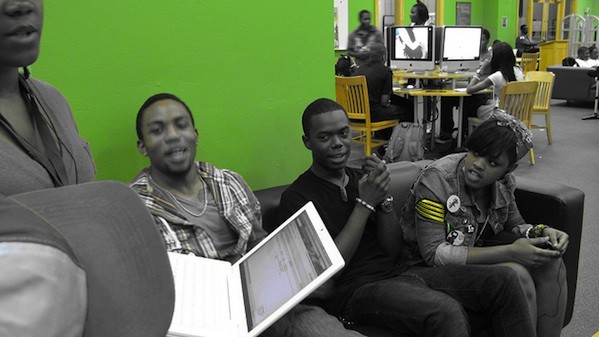dmlcentral.net
Disrupting Class: A New Age for Learning
Book review: one in an occasional series on works that aspire to reimagine learning in the information age.
Let’s start with the shocking news that Disrupting Class authors Clayton Christensen, Michael B. Horn and Curtis W. Johnson present a hopeful view of the world where K-12 education is utterly transformed. In their view, learner-centered teaching plus information technology will mean the end of the century-old industrialized model of public schooling. From page one, there’s an expression of “high hopes.” They debunk many of the traditional theories about why our schools are failing: funding issues, lack of technology, parental disengagement, or teachers unions. Instead, drawing on Howard Gardner’s “theory of multiple intelligences,” Christensen and his co-authors define the core trouble with modern schools as the assembly line-like instructional model. Their solution: radically customized instruction thanks to what they predict will be a fundamental shift in the way schools will use computers and digital media.… more
Top 5 Blog Posts on Digital Media and Learning for 2010
The DML Central blog is just over a year old, and the close of 2010 marks our first full year of publishing thought leadership from our featured bloggers and highlighting best practices in the emerging field of digital media and learning. It has been an inspiring adventure. Thanks in large part to our growing community, we have learned a great deal about collaboration, conversation, and exploration in digital media and learning in the past year -- lessons we will apply in the redesign of this site and the creation of new Web resources in 2011. Meanwhile, we wanted to share the top five blog posts for 2010. Based on our Web analytics, which we track closely to help determine what is important to the practitioners, researchers, policymakers, parents, students and others who visit DML Central, these were the posts that were accessed the most during the course of this past year: 1. Digital Media & Learning Conference 2011 by Katie Salen In this post, Professor Katie Salen, the chair of our second annual Digital Media and Learning conference to be held in Long Beach, Mar. 3-5, 2011, introduces the theme of this year's conference, Designing Learning Futures, and announces the keynote addresses by Alice Taylor, Commissioning Editor for Education at Channel 4, BBC, and Muki Hansteen-Izora, Senior Design Researcher and Strategist with the Product Research and Incubation division of Intel's Digital Health Group. The 2011 conference theme is rooted in the deep rethinking in education and learning ushered in by the accessibility of digital and networked tools for young people. This new networked learning ecology has been cause of both concern and celebration, and it demands a transformation in how we think about, and design for, learning.… more
Peer Learning Isn’t Easy (But Some Days It’s Amazing)
I’m not teaching a class this term. I’m doing something lots harder. I am making a collaborative, peer-led experience available to students. There are six of them: three graduate students, two undergraduate students, and one recent alum. There is no syllabus. As part of HASTAC and the Digital Media and Learning Competition, my semester has been full of exciting opportunities so I wrote an open letter to Duke students inviting anyone daring enough to join me for a peer-created collaboration to build projects around these events. I wanted to share the wealth and turn it into pedagogy. I’ve never done anything like this before so I wanted to handpick the participants in what I call a “Tutorial in Collaborative Thinking.” I had about two dozen inquiries; if the word “grade” or “requirements” came up in the email to me, I knew the student was wrong for this experiment in independent, self-guided group learning-by-doing. The six who were bold enough to join have dubbed themselves FutureClass. They created a class website and even co-created their own logo. If you’ve never co-designed a logo with six people you don’t know, from different backgrounds, different ages, different kinds of expertise, well, let me just tell you it isn’t easy. They pulled it off, too.  Nothing about FutureClass has been easy. To begin with, Duke doesn’t really have an institutional category for a six-person group independent study that crosses graduates and undergraduates and alums (including a doctoral student at UNC too), and in the humanities, social sciences, and sciences. After an exchange of something on the order of a gazillion emails, a department chair (name omitted to protect the implicated) went out on a limb and just signed the form making this anomaly a reality.… more
Nothing about FutureClass has been easy. To begin with, Duke doesn’t really have an institutional category for a six-person group independent study that crosses graduates and undergraduates and alums (including a doctoral student at UNC too), and in the humanities, social sciences, and sciences. After an exchange of something on the order of a gazillion emails, a department chair (name omitted to protect the implicated) went out on a limb and just signed the form making this anomaly a reality.… more


